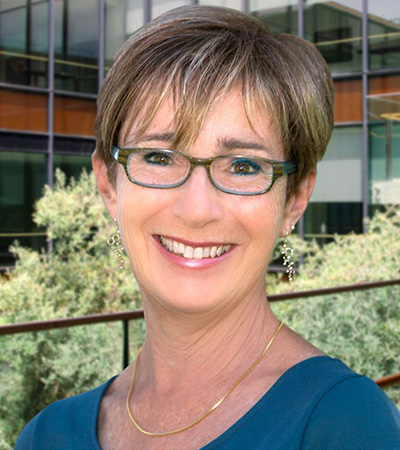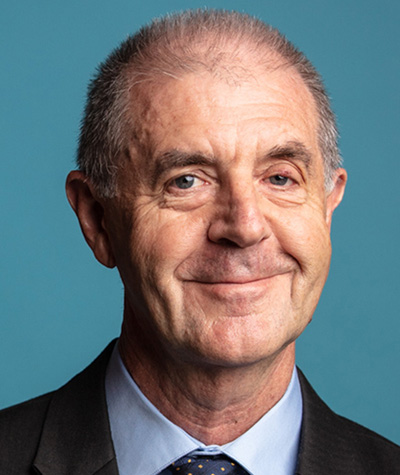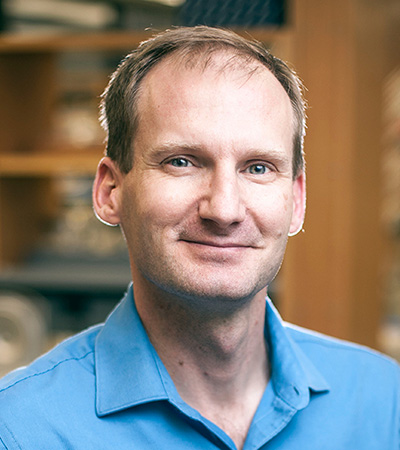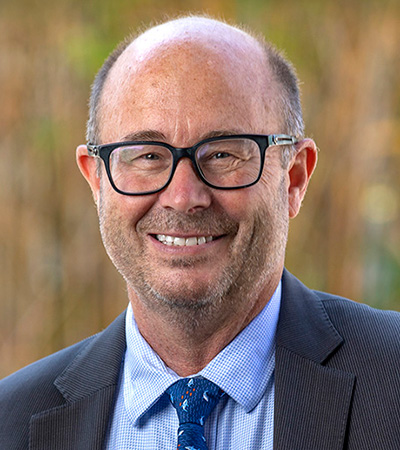Protein Society announces awards
The Protein Society has announced its 2024 award winners. Among those recognized are American Society for Biochemistry and Molecular Biology members Neil Kelleher, Alexandra Newton, David Craik, David Cortez and Jeffery W. Kelly. TPS awards will be conferred at the society's annual meeting in July in Vancouver, Canada.

Kelleher is a professor of molecular biology and the director of the Chemistry of Life Processes Institute and Northwestern Proteomics at Northwestern University. He received the 2024 Christian B. Anfinsen Award, which recognizes technological achievement or significant methodological advances in the field of protein science. Since 1999, the Kelleher lab has advanced top-down proteomics, studied chromatin structure-function and discovered microbial natural products along with the gene clusters that make them.
Kelleher has received many awards including the Biemann Medal from the American Society for Mass Spectrometry and the Pfizer Award in Enzyme Chemistry from the American Chemical Society. TPS is honoring him for seminal contributions in the field of top-down proteomics and his work in proteomics promises to yield far-reaching and revolutionary impacts across biological sciences and medicine.

Newton is a professor of pharmacology at the University of California, San Diego. She received the Marie Maynard Daly Award, which recognizes groundbreaking research at the interface between protein science and human health. Newton is interested in understanding how dysregulated signaling by protein kinases, such as Akt and protein kinase C, and phosphatases is involved in cancer and degenerative diseases.
Newton is the president of the International Union of Biochemistry and Molecular Biology. In addition to this award, she recently received an honorary degree from Simon Fraser University. According to TPS, she is being honored for groundbreaking discoveries about the structure and function of protein kinase C and how disease mutations in this enzyme drive cancer and neurodegenerative diseases.

Craik is a professor of chemistry and structural biology at the University of Queensland and director of the Australian Research Council Centre of Excellence for Innovations in Peptide and Protein Science. He received the Emil Thomas Kaiser Award, which recognizes a recent, highly significant contribution to the application of chemistry in the study of proteins. Craik’s lab focuses on peptide-based drug design and using plants as biofactories for producing high value pharmaceuticals.
Among Craik’s prior international honors are the Adrien Albert Award and the HG Smith Medal, the Hirschmann award in peptide chemistry and the GlaxoSmithKline Award for Research Excellence. He is a fellow of the Royal Australian Chemical Institute, the Royal Society and the Royal Society of Chemistry. According to TPS, Craik is being honored for his pioneering work on the discovery, structural characterization and applications of cyclotides, small, disulfide-rich peptides that protect plants from pathogens.

Cortez is the chair and a professor of biochemistry at Vanderbilt University. He received the Hans Neurath Award, which honors individuals who have made a recent contribution of exceptional merit to basic protein research. Cortez’s lab uses techniques from genetics, proteomics, cell biology and structural biology to study replication stress, DNA damage responses and other pathways that control genome stability.
Cortez is a fellow of the American Association for the Advancement of Science and has received awards from the Pew Charitable Trust, the National Cancer Institute and MD Anderson Cancer Center. According to TPS, Cortez is being honored for world-renowned leadership in DNA damage response and repair mechanisms and the pathophysiology of cancer, where he has developed and applied very creative technological approaches to identify and characterize proteins involved in DNA and genome maintenance.

Kelly is a professor of chemistry at the Scripps Research Institute. He received the Stein & Moore Award, which recognizes eminent leaders in protein science who have made sustained, high-impact research contributions to the field. Kelly’s lab seeks to understand the principles of protein folding and to comprehend the basis for misfolding and/or aggregation diseases to develop novel therapeutic strategies using chemistry, biophysical and biological approaches.
Kelly’s many awards include the Breakthrough Prize in Life Sciences, the Wolf Prize in Chemistry, the E. B. Hershberg Award for Important Discoveries in Medicinally Active Substances and the Gabby Award in Biotechnology and Medicine. He is a fellow of the National Academy of Science and a member of the American Academy of Arts and Sciences. According to TPS, Kelly is being honored for his major contributions to the understanding of peptide and protein folding and misfolding, culminating in his development of new treatments for amyloid diseases.
Enjoy reading ASBMB Today?
Become a member to receive the print edition four times a year and the digital edition monthly.
Learn moreGet the latest from ASBMB Today
Enter your email address, and we’ll send you a weekly email with recent articles, interviews and more.
Latest in People
People highlights or most popular articles

2026 ASBMB election results
Meet the new Council members and Nominating Committee member.

Simcox wins SACNAS mentorship award
She was recognized for her sustained excellence in mentorship and was honored at SACNAS’ 2025 National Conference.

From humble beginnings to unlocking lysosomal secrets
Monther Abu–Remaileh will receive the ASBMB’s 2026 Walter A. Shaw Young Investigator Award in Lipid Research at the ASBMB Annual Meeting, March 7-10 in Washington, D.C.

Chemistry meets biology to thwart parasites
Margaret Phillips will receive the Alice and C. C. Wang Award in Molecular Parasitology at the ASBMB Annual Meeting, March 7-10 in Washington, D.C.

ASBMB announces 2026 JBC/Tabor awardees
The seven awardees are first authors of outstanding papers published in 2025 in the Journal of Biological Chemistry.

Decoding how bacteria flip host’s molecular switches
Kim Orth will receive the Earl and Thressa Stadtman Distinguished Scientists Award at the ASBMB Annual Meeting, March 7–10, just outside of Washington, D.C.
